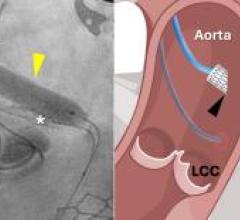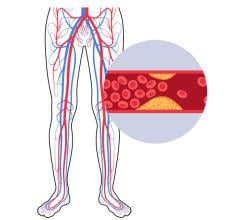While general endotracheal anesthesia (GETA) is the most common type of anesthesia used in infrainguinal bypasses, a study published in the November issue of the Journal of Vascular Surgery reveals that it may not be the best strategy.
“We analyzed CPT codes to trace clinical outcomes of various anesthesia options used in patients who underwent lower extremity infrainguinal bypasses: GETA, spinal anesthesia (SA) and epidural anesthesia (EA),” said Distinguished Fellow Anton N. Sidawy, MD, chief of surgical services at the Veterans’ Affairs Medical Center and Professor of surgery at George Washington and Georgetown Universities, in Washington, D.C. “We found that GETA was associated with worse 30-day morbidity including graft failure.”
Morbidity and mortality outcomes for each anesthesia type were compared using univariate analysis as well as multivariate logistic regression to control for confounders. Compared to SA, the odds of graft failure was 43 percent higher for GETA patients, but there was no statistically significant difference in the graft failure between those who had used EA and SA.
In addition, the odds of returning to the operating room, the incidence of cardiac events (postoperative myocardial infarctions or cardiac arrest) in patients who had no history of congestive heart failure or stroke, and the incidence of pneumonia were significantly higher in patients who had their procedure under GETA. However, there was no significant difference in 30-day mortality among the three groups in the study.
For more information, visitwww.vascularweb.org.


 February 06, 2026
February 06, 2026 









